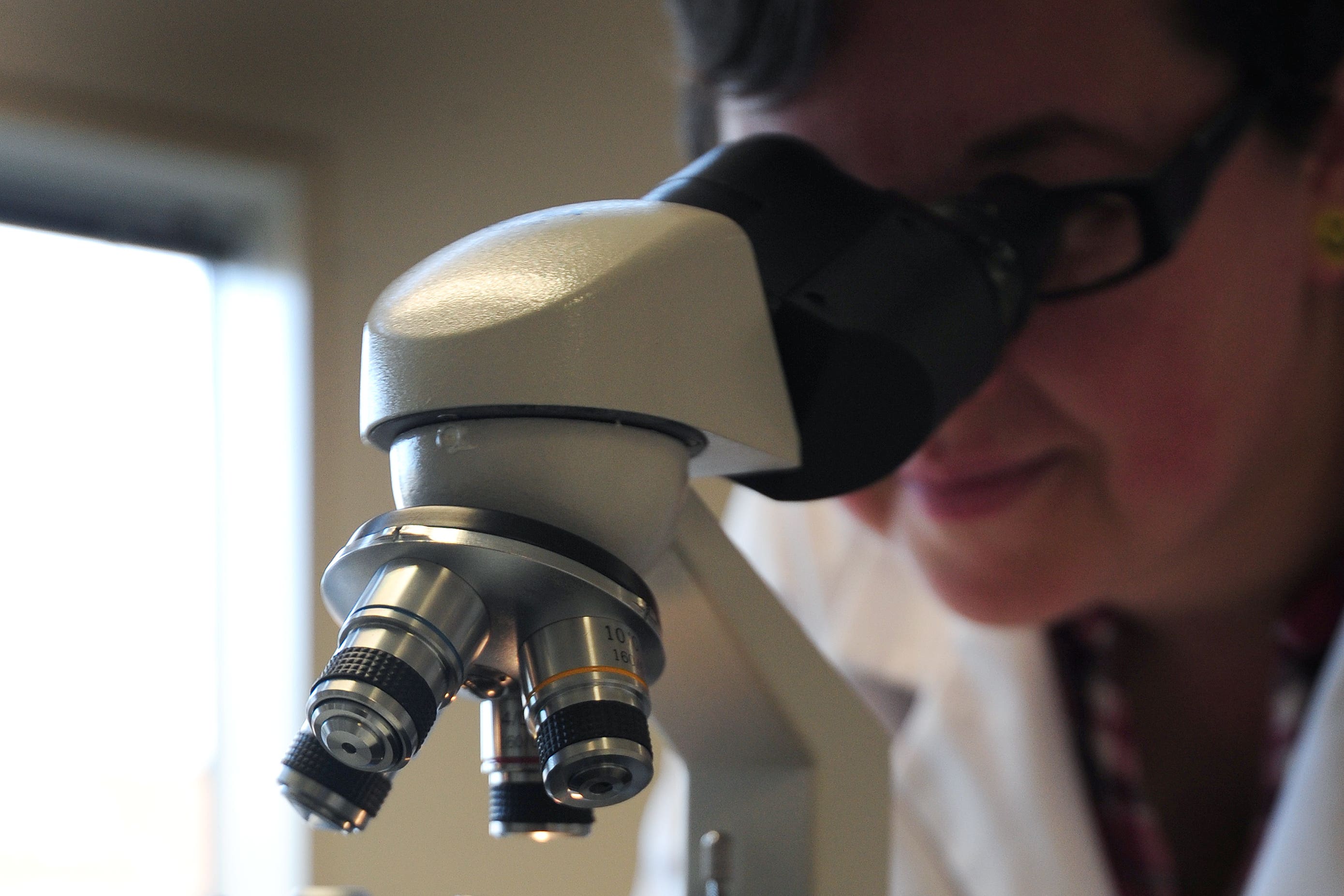First vaccine for ovarian cancer – what we know so far
The jab is being developed in the UK.

Your support helps us to tell the story
From reproductive rights to climate change to Big Tech, The Independent is on the ground when the story is developing. Whether it's investigating the financials of Elon Musk's pro-Trump PAC or producing our latest documentary, 'The A Word', which shines a light on the American women fighting for reproductive rights, we know how important it is to parse out the facts from the messaging.
At such a critical moment in US history, we need reporters on the ground. Your donation allows us to keep sending journalists to speak to both sides of the story.
The Independent is trusted by Americans across the entire political spectrum. And unlike many other quality news outlets, we choose not to lock Americans out of our reporting and analysis with paywalls. We believe quality journalism should be available to everyone, paid for by those who can afford it.
Your support makes all the difference.It is hoped that the world’s first vaccine for ovarian cancer could one day eliminate the disease.
Here the PA news agency answers questions on what is known about the jab so far.
– What is ovarian cancer?
Ovarian cancer affects the ovaries – two small oval-shaped organs that are part of the female reproductive system.
Cancer can occur in the ovaries when abnormal cells begin to grow and divide in an uncontrolled way which eventually form a tumour.
If not caught early, the cancerous cells can grow into the surrounding tissues and may spread to other parts of the body.
– How many women are affected by ovarian cancer in the UK?
There are around 7,500 new ovarian cancer cases in the UK every year.
Just over a third of women (35%) with ovarian cancer will survive for 10 years after diagnosis.
Around 4,100 women die from the disease each year in the UK.
– What are the standard treatments?
Treatment for ovarian cancer depends on a number of factors, including the size and type of ovarian cancer, where it is and whether it has spread.
The main treatments are surgery and chemotherapy, other treatments include targeted medicines and hormone treatments.
– Tell me about the new vaccine
Scientists at the University of Oxford are creating OvarianVax.
It is hoped the jab will work by teaching the immune system to recognise and attack the earliest stages of ovarian cancer.
Experts envisage that this cancer vaccine will work in a preventative way by stopping the very first few cancer cells that develop.
– When will it be ready?
It will still take many years for the vaccine to reach a point where it is widely available.
At the moment, scientists are identifying cellular targets for the vaccine.
They will establish which proteins on the surface of early-stage ovarian cancer cells are most strongly recognised by the immune system, and how effectively the vaccine kills mini-models of ovarian cancer in the lab.
If this research is successful, work will then begin on clinical trials of the vaccine.
Once the various stages of human clinical trials have been completed, health officials can then consider whether it is safe and effective for widespread use.
– What have experts said?
Experts from Cancer Research UK, which is funding the study, have described the work as an “exciting step forwards”.
Professor Ahmed Ahmed, director of the ovarian cancer cell laboratory at MRC Weatherall Institute of Molecular Medicine the University of Oxford, said the aim of the jab is to eliminate ovarian cancer.
“I am optimistic because we are talking about preventing the very first few cancer cells that develop – and not trying to cure or treat or prevent the tumour coming back,” he said.
– What other cancer vaccines are around?
Vaccines are a relatively new development in the arsenal to fight cancer. A number of vaccines are being trialled to see if they are effective in the fight against a number of cancers including melanoma, pancreatic and lung cancer, among others.